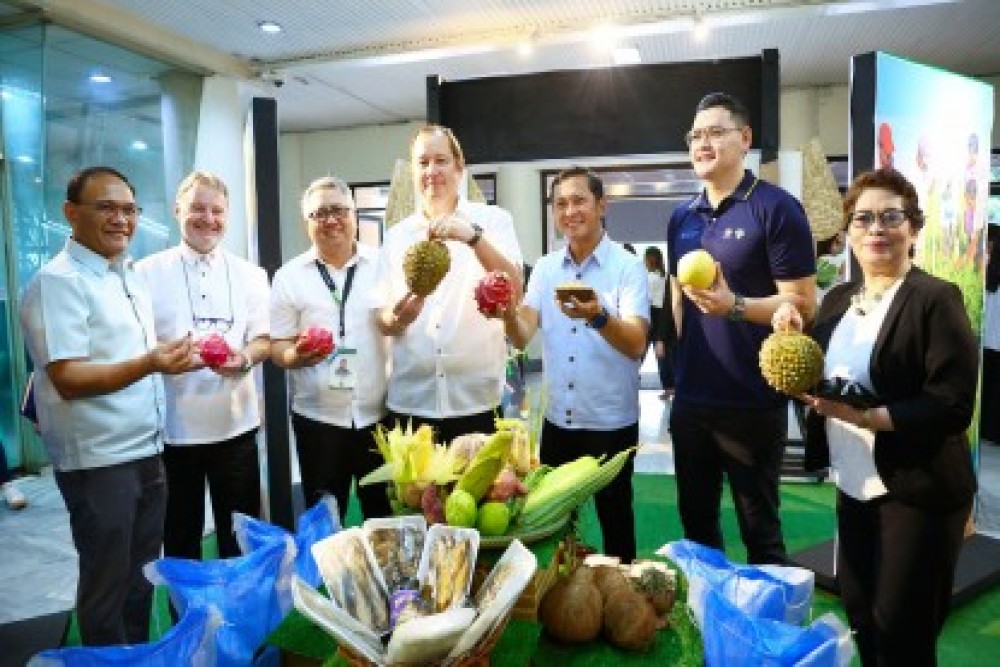President Ferdinand R. Marcos Jr. on Friday expressed optimism that more Philippine tropical fruits would enter the South Korean market, once the Free Trade Agreement (FTA) between the two countries takes effect.
“Very soon, this Free Trade Agreement will enter into force. This will allow Philippine, hindi lamang gulay kundi tropical fruit, bananas, pineapple (not just Philippine vegetables but also tropical fruits, such as bananas and pineapple). They will have access to the Korean market,” Marcos said during the ceremonial turnover of the Korea Partnership for Innovation of Agriculture (KOPIA) Greenhouses and Postharvest Facilities in Lucban, Quezon.
“We are also thankful to the Republic of Korea for the overwhelming support of your National Assembly for the ratification of our FTA, which came much earlier than we had expected.”
The Philippine Senate ratified the FTA between the Philippines and South Korea on Sept. 23, while the Korean National Assembly ratified the deal on Nov. 14.
Under the FTA with South Korea, the Philippines bats for zero tariff on tropical fruits, such as banana and pineapple, which are the country’s major exports to the East Asian trade partner.
Once the FTA is implemented, the 30 percent tariff on Philippine bananas will be eliminated within five years, while the 36 percent tariff on processed pineapple from the Philippines will be removed in seven years.
Marcos acknowledged the FTA’s crucial role in promoting economic stability and agricultural innovation.
“You have reinforced our call for a brighter and more sustainable future for all,” he said. “We celebrate this success as a testament to the enduring relations between the Philippines and the Republic of Korea. For 75 years, our two nations have journeyed together, united by friendship, shared values, and a common aspiration: to uplift the lives of our people.”
Seedling production
Marcos also thanked the South Korean government for its continued belief in the Filipino people and its consistent support, including such initiatives as the KOPIA Greenhouse and Postharvest Facilities.
KOPIA, the largest agricultural research and development organization in South Korea, facilitates the transfer of Korean agriculture technology to farmers in developing countries to help them increase their income and market high-value crops to improve and sustain their livelihood.
Lucban is one of the three pilot greenhouse project sites in the Philippines.
The project established the necessary infrastructure, such as greenhouses with drip irrigation systems, ventilation, and postharvest buildings, enabling the farmers to control their growing environment and protect crops from pests and extreme elements.
Production inputs, farm machinery, training on Good Agricultural Practices, and postharvest technologies were also provided.
During the event, Marcos toured and inspected the project site, particularly the arugula and lettuce greenhouse, cucumber greenhouse, and greenhouse of various seedlings of parthenocarpic high-value crops.
The President said the government is working on developing community- and university-based seed production facilities to boost the country’s food production.
He said the creation of a food production facility would be led by the Department of Agriculture with the help of the Department of the Interior and Local Government, the Commission on Higher Education, and other state universities and colleges.
“Together with this effort, we are developing our capacity for local seed production to sustain our agricultural sectors’ needs,” Marcos said. “Through these endeavors, no farmer, no family, no community will be left behind as we strive for a future where agriculture drives growth, nourishes our people, and sustains our nation.”


